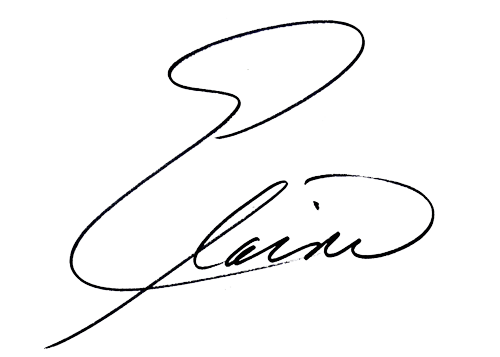9 Simple Steps to Keep It Strong!
“We are inhabited by as many as ten thousand bacterial species; those cells outnumber those which we consider our own by ten to one, and weigh, all told, about three pounds – the same as our brain. Together, they are referred to as our microbiome – and they play such a crucial role in our lives that scientists like [Martin J.] Blaser have begun to reconsider what it means to be human.” ―
Do you struggle with any of the many chronic conditions that affect most people today? Things like gut issues, autoimmune conditions, hypo or hyperthyroid conditions, depression, anxiety, hormone imbalances, diabetes, problems sleeping, or virtually any other health ailment?
The interesting thing about all of these symptoms is that they are all linked to a part of you that isn’t even human at all . . .
Meet Your Microbiome
“We humans are mostly microbes – over 100 trillion of them . . . “ Center for Ecogenetics & Environmental Health
Until recently no one had any idea about the human “microbiome” and that we’re not completely human at all but more “microbial” in nature. It’s even been suggested that these little guys created us millions of years ago so they’d have a comfortable home to live in.
All kidding aside, in and on each of us live more microbes than you could count – bacteria, fungi, protozoa, and viruses – yes, viruses. They occupy every square inch of your body – inside and out – and outnumber your cells and your genes by multiple factors.
They live on your skin, in your ears, eyes, and nasal passages. And they exist in every tissue of your body and in your entire GI tract.
As you read this you have about ten to the power of 15 viruses hanging out on you. That’s called a quadrillion. And to give you an idea of just how massive that number is, it would take you around 31.688 million years at the rate of 1 count per second to count it out.
Where do they come from?
“We inherit every one of our genes, but we leave the womb without a single microbe. As we pass through our mother’s birth canal, we begin to attract entire colonies of bacteria. By the time a child can crawl, he has been blanketed by an enormous, unseen cloud of microorganisms – a hundred trillion or more.” Specter
This may be the most interesting part and one we’ve long forgotten. It’s believed that a newborn’s first microbioome “inoculation” happens when the child passes through the birth canal. Here it is covered with mom’s microbiome. After that microbes come at us from all directions: other people, pets, food, dirt, breast milk, clothing, cars, friends and family, buildings, trees, even the air we breathe.
This massive onslaught of microbial life so early on is the foundation for a healthy, happy child.
We Need Them to Survive
“Microbes contribute more genes responsible for human survival than humans contribute. Where the human genome carries some 22,000 protein-coding genes . . .the human microbiome contributes some 8 million . . . or 360 times more bacterial genes than human genes . . .” NIH Study
While we’ve been frantically trying to wipe these little guys out with antibiotics, sanitizing products, chemicals, and harsh cleaners, the irony of it all is this: WE NEED THEM TO SURVIVE.
You might think this sounds extreme, but without them we’re toast. They’re our connection to nature and the environment from which we came. And they are the foundation of your health.
Here’s the shortlist of the jobs they handle for you . . .
- Help digest your food
- Produce nutrients so they can be absorbed by your body
- Break down toxins before they enter the body
- Influence the production of neurotransmitters. About 90% of your Serotonin is produced in the gut, which is why anxiety, depression, and other mood disorders have been linked directly to your gut bacteria.
- Regulate your immune system
- Produce anti-inflammatory compounds that fight off other disease-causing microbes
- Regulate your hormonal systems
- Protect you from the pathogenic bacteria
- Produce vitamins – B vitamins, B12, thiamine, riboflavin, vitamin K
- Influence your food cravings (The more pathogenic ones you have, the more you’ll crave sugar!)
- Carry on conversations with your brain and influence your mental health
- Influence your metabolic health
All Disease Starts Here
Every chronic illness that we struggle with today is linked to your gut health – diabetes, rheumatoid arthritis, muscular dystrophy, thyroid issues, obesity, MS . . . even anxiety and depression are gut-related.
When the gut and its microbial community are is broken, your body’s broken.
But there’s good news in all of this. The gut can be healed and a healthy microbiome restablished. It takes some work and commitment but it’s totally possible.
How to Supporting Your Microbes
Here are a few strategies you can try to support your little guys and provide a welcome home for them to thrive:
#1 – “Crowd out” sugar and processed foods
If you’re rolling your eyes I get it. Sugar’s a favorite for most of us. But the massive amount of it packed into processed foods inflames the body and is linked to metabolic dysfunction.
I covered its connection to cardiovascular disease in this post. Sugar also feeds pathogenic bacteria which crowd out the good bacteria you want and need.
You can take it slowly, cutting back on your sugar intake and bringing in natural forms, like whole fruits, some sweet veggies (e.g. sweet potatoes & beets) to assuage your sweet tooth. But avoid fruit juices as they’re high in sugar – often have added sugar – and have no fiber to buffer the sugar hit.
If you’re a diehard, you can go cold turkey and take sugar, white flour, bread, cookies, and all sweeteners and sugar substitutes – out of your diet for a minimum of seven days. Seven days and I promise you, your taste buds will change, your sugar cravings will diminish, and you may even lose a little weight.
(A note on sugar substitutes – while they may seem harmless in that they carry no calories, sugar substitutes are hundreds of times sweeter affecting your sense of taste and your tendency to ramp up the sweetness level you need to be satisfied. Ironically, they’re also linked to weight gain and various metabolic issues, weight gain, brain tumors, and many other health hazards.) Tandal
#2 – Eat a diverse variety of vegetables & fruits
Diversity in the foods you eat creates diversity in your microbe community. The more diverse your microbes, the better your health potential.
#3 – Use antibiotics only when absolutely necessary
Antibiotics kill your gut microbes. The more you use them, the more devastating the impact on your overall health. I can’t begin to cite the number of times my daughter has been to her doc with a skin issue, or some other minor problem when antibiotics were prescribed. We did a little research and often found a natural remedy to cure the problem. And, yes, there are times when antibiotics are life-saving and you’ll need them.
#5 – Avoid factory-farmed meats
Meats that you purchase from your local grocer are treated with antibiotics and growth hormones. When you eat the meat of these animals, you absorb the antibiotics and hormones they were treated with. You don’t want that stuff in you!
Look for meats labeled “no antibiotics or hormones . . “, organic, or grass-fed/pastured is even better. The use of “Natural” on meats or any foods is relatively meaningless, essentially indicating that no synthetic ingredients have been added.
#6 – Increase your fiber intake
Fiber’s friend to your microbes. It’s what they eat to stay healthy. Eat whole fruits, vegetables, legumes, and whole grains (unless you have chronic gut issues, as legumes and grains can magnify the problem). Great sources of fiber include avocados, broccoli, artichokes, figs, pears, legumes, and lentils.
#7 – Consider prebiotics and probiotics
Prebiotics are food for your microbes. Many come in the form of whole foods like Jerusalem artichokes, raw onions, garlic, leeks, asparagus, dandelion greens, and bananas. Probiotics are the bacteria themselves.
There are numerous pre and probiotic supplements on the market. Look for brands from reputable companies with solid research behind them. Some of my favorites: Thorne, Life Extension, Metagenics, Pure Encapsulations.
With any new supplement or change, check with your doctor first and go slowly so your body can more easily adapt.
(Note: Prebiotics can be irritating if you have major intestinal upsets like SIBO – Small Intestinal bacterial overgrowth, or IBS – Irritable Bowel Syndrome. In these cases consult a physician first for steps to remove pathogenic strains before feeding the good guys.)
#8 – Check your vitamin D
Vitamin D helps to maintain a healthy gut microbiome and most of us in the northern hemisphere are deficient in this important hormone. Start with a blood test and work toward an optimal level of 50 -80 ng/mL.
If you need to supplement, look for one that provides Vit D and K2 together as vitamin K is essential for the absorption of D. Sunshine is a natural generator of Vitamin D. A little daily sunshine – 15 – 20 minutes with as much bare skin as possible can do the trick.
#9 – Eat fewer pesticide-treated foods
Pesticides used to treat many of our crops are essentially microbe killers. If you can’t go mostly organic, try to buy from local farms, or get this list and eat mostly the “Clean 15” – those fruits and veggies that can thrive with few chemicals. Surprisingly, kale is one of the dirtiest veggies when it’s not organic.
Here’s another useful tip: When washing fruits and vegetables that have been treated with pesticides. Soak them in a solution of about two teaspoons of baking soda to a quart of water. Let soak for 15 minutes and rinse.
Chronic Conditions
If your condition is chronic, it’s important to consult a functional medicine practitioner. She can order the appropriate tests to uncover the root cause and the makeup of your current microbiome so a plan can be set moving forward.
Until next time . . . If you’re struggling with gut issues or other health conditions, book a confidential call with me – here. Let’s get to work and get you back on track!
In love and health, ♥
Disclaimer: I’m not a scientist or a doctor. I’m a health professional trained and certified in functional medicine, holistic health, and gut health with a deep desire to understand the details of how our bodies work, what causes illness, and how to avoid the chronic illnesses that are so prevalent today. The content and information provided here are for educational purposes only and not intended as a substitute for professional medical advice, diagnosis or treatment that can be provided by your own Medical Provider.


Leave A Comment